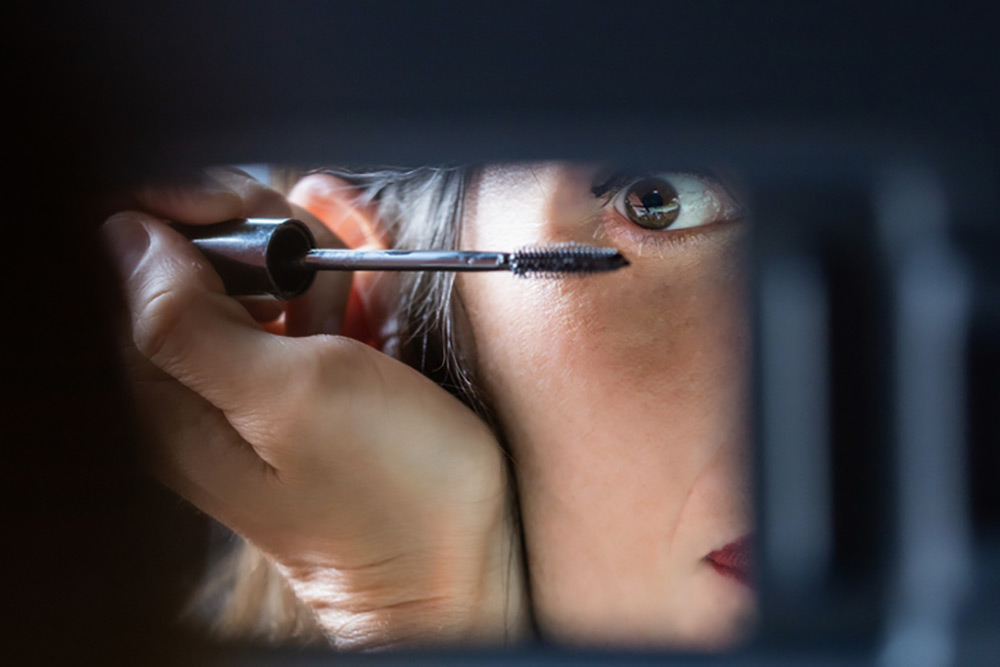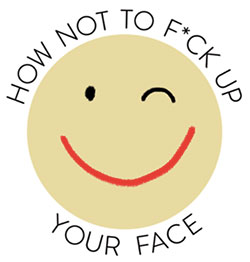By Valerie Monroe
If you’re interested in feeling happier about your appearance—especially as you age—you might like reading what she has to say about it. For more of her philosophical and practical advice, subscribe for free to How Not to F*ck Up Your Face at valeriemonroe.substack.com.
HERE ARE A couple of pointed reader questions with one very squidgy answer.
Q: While I do pay attention to some degree to the ingredients in the products I use on my body, I am loathe to give up my “Portrait of a Lady” perfume for any “clean” fragrance I’ve tried. Is there a legitimate risk to using non-“clean” perfumes? I don’t know who to trust on this issue in general.
And . . .
Q: I’ve been reading a lot about menopause and perimenopause and the importance of using products that don’t have lots of yucky ingredients, because they can mess with our hormones. First of all, is that true? I use approximately a bajillion face products because I love to use products, and I’m starting to feel like I should explore some more natural routes. Do they have to be organic, too? Or just without the worst offenders? Also, what are the worst offenders? I’m truly overwhelmed!
A: Truly overwhelmed! That makes three of us! (And probably lots more.)
Fear of toxicity in our personal-care products—I don’t care, personally, for that handle, but anyway—is real, and the confusion surrounding that fear is completely appropriate. Why? Because regulation of such products—including cleansers, shampoos, and cosmetics of all kinds—is both haphazard and difficult to understand. Which is why I’m unable to tell you in black-and-white terms which products to absolutely avoid.
A recent New York Times story (gifted for you, here) makes an effort to clarify which ingredients are the most dangerous. But if you read that story and finish it as baffled and uncertain as I was, I wouldn’t blame you. Bottom-line, you have a few options regarding how to cope with this issue.
The two extremes: Throw caution to the wind and carry on as usual. Or, stop using all products and simply rinse clean except for very personal care. Or finally, take a middle road and choose moderation. You might be the kind of person who won’t wear mascara but colors her hair regularly because it brightens her outlook. Or you won’t wear lipstick, but polishing your nails is one grooming ritual that adds some color to your life. Or you could go very low-bar, like me, mostly using products free of parabens, phthalates, and fragrance, wearing lipstick and mascara infrequently, and trying to avoid anything that makes you break out in an ugly rash. Basically, I use as few products as possible without making myself feel deprived of “self care,” which is relatively easy, as I don’t derive my “self care” from products anyway.
If you like the feeling of a seatbelt, you might try one of several apps available, like Think Dirty and Yuka, intended to help you figure out a product’s level of potentially harmful ingredients. Be prepared to spend a significant amount of time with your face in your phone, and keep in mind that the ratings are, among other unreliable elements, subjective—meaning they don’t include many factors that might influence your personal amount of risk. For example, here’s a biochemist’s review of Think Dirty, and a dietitian’s review of Yuka’s food ratings.
I don’t mean to be (entirely) glib; I know there are readers who will take issue with this prescription and tell us to go on slathering ourselves with cancer juice or whatever. And those people will find their own strategy, which may include interacting with ingredients that agree with them but not with us. Cosmetic chemist Perry Romanowski, co-host of The Beauty Brains podcast, has this to say: “It is against the law to sell unsafe cosmetic products.”
“Clean” beauty is a made-up marketing term meant to convince you that a product is harmless. Similarly, the term “natural” beauty is meaningless. What I hope will not be meaningless: the Modernization of Cosmetics Regulation Act (MoCRA), a cosmetic regulatory overhaul that became law at the end of last year and that will enforce greater regulation of cosmetic products and facilities. (Unbelievably, it’s the first major update to the FDA cosmetics regulations since 1938.)
As for your particular questions, dear readers above, if a gorgeous fragrance frees your spirit, Romanowski says, “There’s no good reason to stop using [it], as there is zero evidence that it’s unsafe.” I agree—and propose you adorn yourself with “Portrait of a Lady” as liberally as you like. To the reader who’s using a bajillion products on her face, though, I might suggest a winnowing. You ask about the worst offenders? Probably the devils on your shoulder suggesting that any of those bajillion products are going to do something miraculous for your complexion. Save your money while you lower exposure risks: Indulge in a DIY facelift. The main ingredient—thoroughly non-toxic—is love.
MyLittleBird often includes links to products we write about. Our editorial choices are made independently; nonetheless, a purchase made through such a link can sometimes result in MyLittleBird receiving a commission on the sale. We are also an Amazon Associate.



Hard to know what to do. Although I think of myself as a skin care junkie, I know I use many fewer products than lots of other people. As with everything, moderation is the key, I guess.